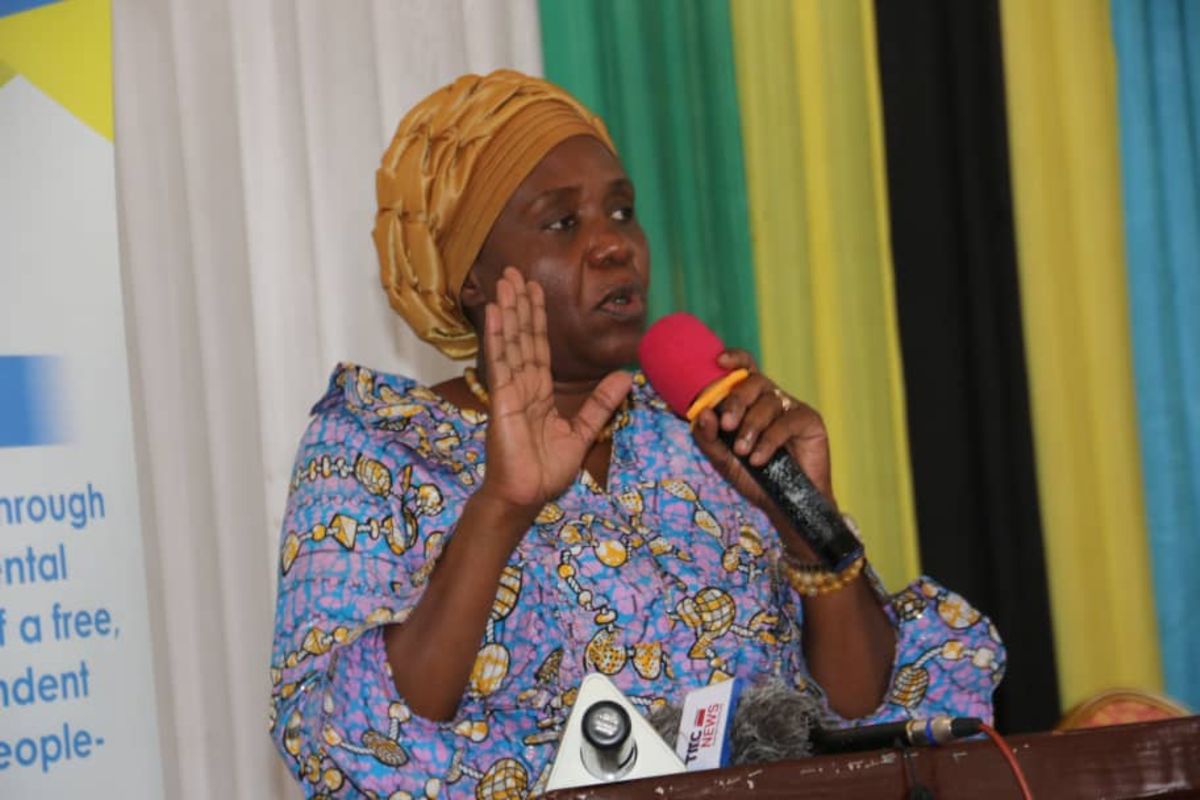
Dodoma. Zaidi ya nusu ya watoto nchini hawako katika ukuaji sahihi unaotakiwa huku ikielezwa kuwa hali hiyo inaweza kuongezeka ikiwa juhudi za makusudi hazitachukuliwa.
Takwimu hizo zimetolewa leo Februari 28,2025 jijini Dodoma na Waziri wa Maendeleo ya Jamii, Jinsia, Wanawake na Makundi Maalum Dk Dorothy Gwajima wakati akifungua mafunzo ya waandishi wa habari wanaojisisha na taarifa za mtoto.
Dk Gwajima amesema takwimu za kitafiti zinaonyesha asilimia 47 ya watoto nchi Tanzania ndiyo walionekana kuwa ukuaji sahihi uliotimilika, huku asilimia 53 hawakuwa kwenye ukuaji sahihi uliotimilika.
Kwa mujibu takwimu za mwaka 2022 za Ofisi ya Taifa ya Takwimu (NBS) zinaonyesha idadi ya watoto wenye umri wa kuanzia miaka 0-8 ambao wanatajwa walikuwa 16,694,763 ambayo ni asilimia 27.0 ya Watanzania hivyo kwa asilimia 53 inayoelezwa ni watoto 8.8 milioni.
Katika mafunzo hayo ambayo yameandaliwa na Umoja wa Vilabu vya Waandishi wa Habari nchini (UTPC) kwa kushirikiana na taasisi nyingine, yamewakusanya waandishi wa habari wanaoandika habari za mtoto kutoka mikoa 26 ya Tanzania Bara na yanafanyika kwa siku tatu.
Kwa mara ya kwanza mpango huo ulizinduliwa Desemba 23, 2021 na umetajwa kuwa na mafanikio makubwa kwa kutumia waandishi na radio za kijamii.
“Hali hii tunayoiona kwa sasa itakuwa mbaya zaidi kwa siku zijazo kama hatutaweza kuchukua hatua za makusudi, lazima tubadili mtazamo kuanzia mtu anapokuwa na mimba hadi mtoto atakapofikisha miaka minane,” amesema Dk Gwajima.
Waziri amesema wazazi wengi wanadanganywa na unene wa watoto wao wakiamini ndiyo wapo kwenye afya nzur, wakati hakuna ukweli kwenye jambo hilo.
Amewataka waandishi wa habari kutumia kalamu zao vema kulisaidia Taifa la kesho hasa kuwaelimisha watu watambue afya za watoto wao tangu wakiwa wadogo, huku akisisitiza zaidi hatari zinazowapata watoto wa vijijini.
Mratibu wa Ubora wa huduma za Tiba kutoka Ofisi ya Rais Tamisemi, Dk Pius Kagoma amesema ulinzi na usalama ni kwa mtoto ni sehemu ya makuzi. “Lakini jambo kubwa ni lishe toshelevu.
Dk Kagoma amewaambia waandishi wa habari kwamba Serikali itaendelea kuweka mkakati wa kuwalinda watoto, ambapo matokeo yatakuwa chanya iwapo waandishi watatumia zaidi kalamu zao kufikisha ujumbe kwa jamii.
Mkurugenzi Msaidizi Idara ya Maendeleo ya Jamii, Mathia Haule amesema watoto wengi wamekuwa waathirika wa ukatili na mara nyingine kesi zinamalizwa ngazi ya kaya na familia, jambo ambalo limekuwa chanzo na kichaka cha kuficha uhalifu.
Haule amesema kalamu pekee zinaweza kufichua mambo hayo hivyo waandishi wanahimizwa kujengewa uwezo kuhusu malezi na makuzi ya awali ya mtoto.
Source: mwananchi.co.tz













